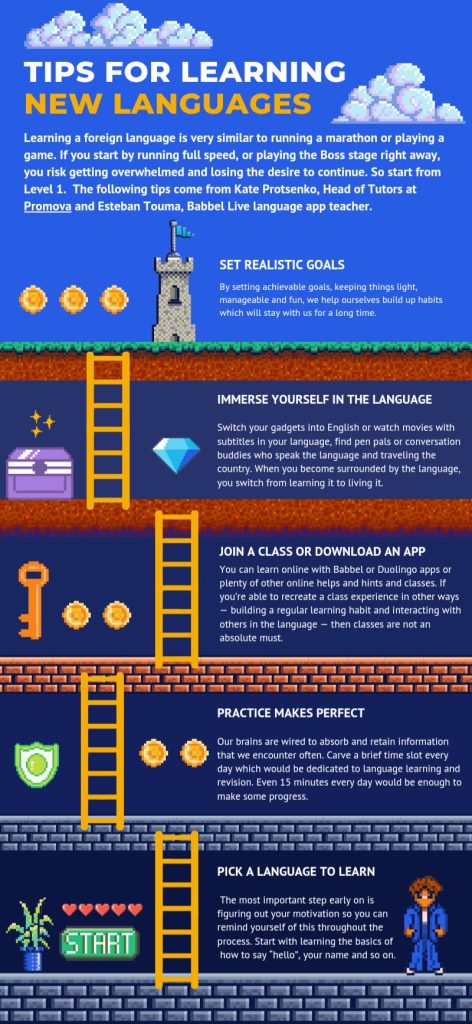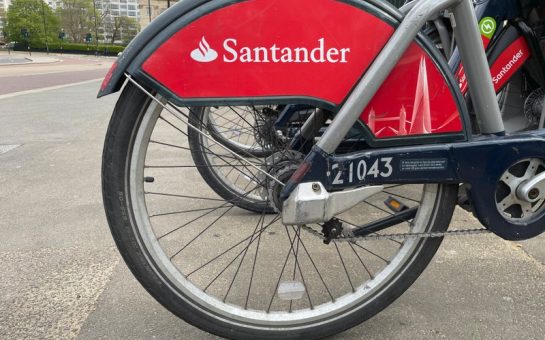European languages continued to dominate the most Googled languages to learn in the UK, despite a surge in interest in Arabic.
Spanish, English, French were the top three most Google searched languages to learn in the UK last year, according to a study by linguist platform Promova.
Spanish was the only language to get more than 100,000 searches a month on average, compared to English and French which were both below 65,000.
The search term “learn Arabic” has also seen the largest increase in interest (up 30.9%) from last year, followed by “learn Portuguese” (up 24.67%) and “learn Italian” (up 12.49%).
“Learn English” actually saw a significant decline, down more than 15%.
One possible reason for the popularity of learning Spanish among Brits, theorised by Promova, is due to the regular appearance of Spanish-language songs in the UK charts, as well as it being taught in schools.
Kate Protsenko, Head of Tutors at Promova, suggested the rise of people in the UK wanting to learn Arabic may be due to the strategic desire of the UK government to nourish the partnership relations with Arabic-speaking countries such as Qatar.
Another reason she explained may be due to increased immigration from Arabic-speaking countries, as according to the 2021 United Kingdom census, Arabs in England & Wales numbered 331,844.
Shaheera Anwar, 32, Journalist in UAE said: “I’ve realised that enhancing my Arabic skills could open up better career opportunities and potentially lead to improved compensation.”
Hanan A, 26, clinical coordinator from London added: “I decided to learn Arabic because I wanted to have a deeper connection to the Quran.”
With Portuguese and Italian, the interest in learning those languages among Brits could be provoked due to mutual tourism.
There were 581 direct flight departures to Britain per week, with a total seat capacity of 106,059 per week, according to the report by Visit Britain.
Therefore, nearly five and a half million people flew over from Portugal in 2023 and the total visits from the UK to Portugal in 2023 were much higher.
Similarly to explain the interest in learning Italian, Italy seemed to be a popular holiday destination for UK citizens.
There were 932 weekly departures from the UK to Italy, with an average seat capacity of 165,642, so around eight and a half million people flew to Italy in 2023, according to the report by Visit Britain.
Italian is also a particularly useful skill for business in the UK as Italy is the UK’s big non-English-speaking goods export market source of imports.
The reason behind the drop in English could be a shift to using TikTok instead of Google for searching information among the younger generation.
The Promova study also found that for the last 12 months, hashtag #learnenglish in the UK got 202 million views and the number of views for this hashtag for the last three years is 432 million.
Babbel Live language app teacher, Esteban Touma said: “Even as technology gains incredible capabilities, you cannot use Google Translate, AI or an app to truly understand and communicate with people in their own language or enjoy the job opportunities or life experiences that new language can bring.
“I love seeing those lightbulb moments where someone learns a new phrase or can order something on their own: you can almost literally see things clicking in your students’ brains.”
Here are some tips for learning a new language from Kate Protsenko and Esteban Touma:

Madeehah, Pharmacist and writer from London, said: “I chose to learn how to read the Bengali alphabet so I could understand the extended family WhatsApp group.
“Language learning is important to preserve our cultural identity, even if we are spread across the world.”
As we begin the new year, many will have ‘learning a new language’ as their new year’s resolution in 2024.
These trends are likely to continue and grow in the UK, but there’s possibilities for new interests and piques in language choices too.
What new languages will you be learning in 2024?





